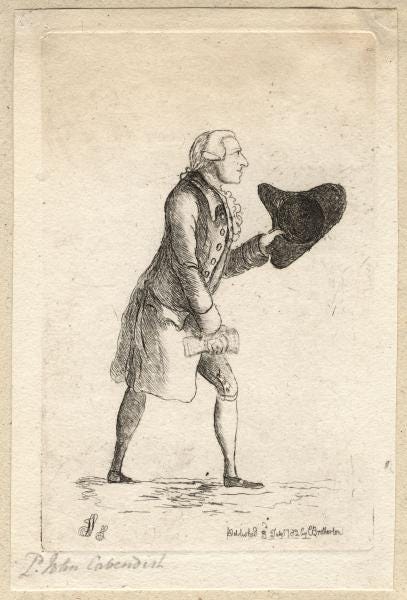“Clothes maketh the man,” or so we were informed by “the Kingsman.” There is something to be said, though, for the rather radical changes in how westerners dressed, danced, and dueled in the second two decades of the 1800s.
The late great Paul Johnson, whom I eulogized here, argued that the period 1815 to about 1835 was remarkable because it was “the last period in history in which men could closely scrutinize the physical beauty of their own sex without being thought homosexual and women could comment on the male form without raising eyebrows.”
Men were admired for slender waists, broad chests, abundant hair (still in vogue except among some Hollywood fashionistas) and, surprisingly, well developed calves.
Indeed, there was such a male thing as a “Cavendish Leg.”
Ok, ok. so maybe he doesn’t compare with the guy above, but you get the point. However, it didn’t take long for male fashion to descend, most notably because of the arrival of “trousers,” the “most enduring masculine garment in history.” Male calves no longer had an attraction because no one could see them.
This was really the first step in a western shift in which men handed over to women the reins of sartorial display. Charles Stewart (Viscount Castlereagh) arrived at the Congress of Vienna in black and white, virtually a puritan, with his only accessory a blue garter ribbon. By 1840, men on both sides of the Atlantic had pretty much given up on the peacock-ery and routinely dressed in browns, greys, and blacks.
By the 1830s, men had abandoned makeup.
These changes were also accompanied by a shift in dancing. Highly choreographed moves such as the minuet were still practiced by the uber-elites, but the lower nobility and bourgeoise danced the waltz, and the true renegades, the “Virginia Reel.” It was said George Washington as a superb dancer. Music found at Mount Vernon showed that while he had “the classics,” he also possessed more of the Revolutionary music, meaning the Father of our Country could rock and roll with the best of them.
A shift in dressing and dancing also, but more gradually, was joined by a growing disdain for dueling. To properly understand dueling, it is important to note that in a pre-mass communication age—-and I’m not just talking internet, but even the widespread use of newspapers—-there were no shortcuts to determining someone’s character. This was especially true in business. A man’s word was his bond.
Concern for the maintenance of one’s character was essential to getting loans, finding a spouse, or being appointed to any government position. That is why so many duels were fought over slandering a man’s character. (Reagan’s labor secretary Ray Donovan—-no, not Liev Scheiber—-was hauled before courts with various charges. When he was declared not guilty he asked, “Where do I go to get my good name back?”) True, duels also constituted a macho thing, but modern people should not dismiss the character aspects of dueling.
Dueling was quite common among America’s politicians, military officers, and “aristocracy:” two Georgia Congressmen fought a duel on the banks of the Potomac; Secretary of State Henry Clay fought congressman John Randolph of Roanoke; Andrew Jackson fought so many duels he carried lead in him his entire life (the others carried his lead to their deaths); and in Arkansas two state legislators didn’t even wait for the duel—-they just went at it with Bowie knives on the floor of the state house!
(But “politics is so nasty today”).
Europe was even worse. In 1815 just in the city of Jena there were 147 duels. But even in England the aging Duke of Wellington fought a duel where he fired wide and survived. Was it a “socially tolerated excuse for physical violence?” Sure, in some ways. But it cannot be ignored that the demise of dueling came with the rise of mass (even if highly partisan) newspapers. It became impossible to track down every slander. It is something of an irony that the “toxically masculine” practice of dueling ended just as men were giving up makeup.
Coincidence?
If you like what you read, please don’t hesitate to "buy me a coffee" here.
Larry Schweikart
Rock drummer
Film maker
NYTimes #1 bestselling author
Political pundit
For even more truth-based current events, politics, and history content + resources, check out my VIP membership below
https://www.wildworldofhistory.com/vip






